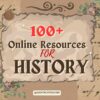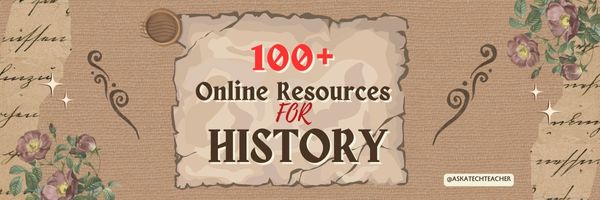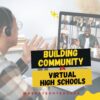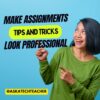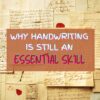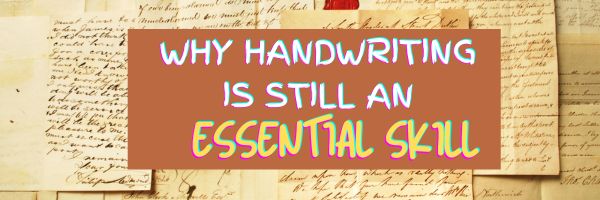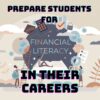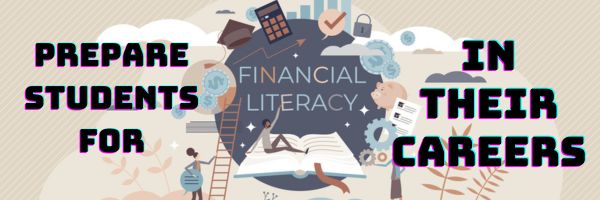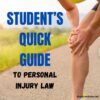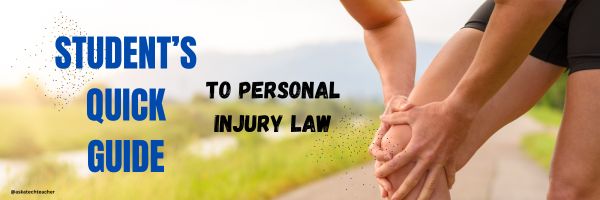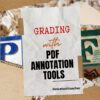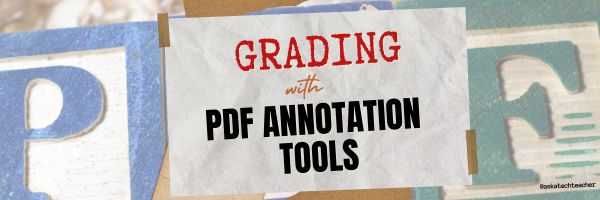Year: 2024
USA Moon Landing July 20 1969
On July 20, 1969, Neil Armstrong was the first man to place foot on the moon. Commemorate that this year with an exciting collection of websites and apps that take your students to the Moon (click for updates to the list):
- Apollo 11: Countdown to Launch via Google Earth
- Apollo 11 VR
- Google Moon–see the Moon in 3D with your Google Earth app
- How we are going to the Moon–video
- If the Moon Were Only One Pixel…
- JFK Challenge — takes kids to the Apollo 11
- NASA’s Musical Playlist–88 million viewers of 188 songs
- Moon Phase Simulation Viewed from Earth and Space (interactive, elementary and middle school)—and associated Lesson Plan
- Observing the Moon in the Sky (interactive, elementary)
- Moonrise to Moonset (media gallery, elementary)
More on space
Share this:
- Click to share on Facebook (Opens in new window) Facebook
- Click to share on X (Opens in new window) X
- Click to share on LinkedIn (Opens in new window) LinkedIn
- Click to share on Pinterest (Opens in new window) Pinterest
- Click to share on Telegram (Opens in new window) Telegram
- Click to email a link to a friend (Opens in new window) Email
- More
100+ Online Resources About History
Here are popular online resources to teach about History (click here for updates to the list):
- Critical Past–original videos from mid-1800’s and forward of amazing events in world history.
- DocsTeach
- Hello History–chat with historic figures from the past
- History Central
- History for Kids--written by a ‘kid’ in well-chosen words his peers will understand
- HistoryPin–connect your community with local history
- Media History Project
- Pass the Past–educational game to help students prepare for Virginia’s Standard’s of Learning (SOL) exams with a focus on World, United States and Virginia history, civics, and geography. (app)
- Timelapse–watch the world change over time
Share this:
- Click to share on Facebook (Opens in new window) Facebook
- Click to share on X (Opens in new window) X
- Click to share on LinkedIn (Opens in new window) LinkedIn
- Click to share on Pinterest (Opens in new window) Pinterest
- Click to share on Telegram (Opens in new window) Telegram
- Click to email a link to a friend (Opens in new window) Email
- More
Building Community in Virtual High Schools
In response to the challenges of COVID, a dissatisfaction with local in-person schools, and increasingly diverse needs of the high school student population, enrollment in US virtual schools is now over 300,000 with about 20% of students taking at least one online course. There are pros and cons of attending class via computer. You can learn on your own schedule, but what if you have connectivity issues? You have more independence in your learning, but what if the teacher isn’t inspirational?
One big issue among many is the importance of building community in virtual schools. The Ask a Tech Teacher team dug into this:
Building Community in Virtual High Schools
As educators, we often hear concerns about the lack of socialization in online learning environments. However, the reality of virtual high schools is far from the isolated, impersonal experience many imagine. In fact, with intentional effort and innovative approaches, an online high school can foster vibrant, supportive communities that rival those of traditional brick-and-mortar institutions.
The Importance of Community in Education
A sense of belonging enhances student engagement, improves academic performance, and supports mental health. In virtual settings, where students might otherwise feel disconnected, building community becomes even more critical.
Strategies for fostering student connection include: (more…)
Share this:
- Click to share on Facebook (Opens in new window) Facebook
- Click to share on X (Opens in new window) X
- Click to share on LinkedIn (Opens in new window) LinkedIn
- Click to share on Pinterest (Opens in new window) Pinterest
- Click to share on Telegram (Opens in new window) Telegram
- Click to email a link to a friend (Opens in new window) Email
- More
Top Tips And Tricks To Make Your Assignment Look Professional
How do assignments made by online professionals get good scores? Here are tips to make your assignment look professional, from the Ask a Tech Teacher international team:
Top Tips And Tricks To Make Your Assignment Look Professional
Introduction
One of the most important aspects of an assignment is how you present your report. Similarly, when it comes to the art of assignment creation, it is not just about the content. It is also about how you present it to your professor.
A meticulously designed has the best assignment front page design, an executive summary, a table of contents, and its overall design and presentation.
Moreover, creating the best cover page design for assignments sets the tone for what’s to come next. This signals the readers that they are about to engage with something that will be interesting to read.
This article will emphasize the tips and tricks that will make your assignment look professional.
Are you stressed due to low academic scores and want to improve your grades?
Well, worry no more! Let these tips help you. (more…)
Share this:
- Click to share on Facebook (Opens in new window) Facebook
- Click to share on X (Opens in new window) X
- Click to share on LinkedIn (Opens in new window) LinkedIn
- Click to share on Pinterest (Opens in new window) Pinterest
- Click to share on Telegram (Opens in new window) Telegram
- Click to email a link to a friend (Opens in new window) Email
- More
The Case for Why Handwriting is Still an Essential Skill for Students
- Enhanced memory and learning: Handwriting improves retention of information compared to typing.
- Improved hand-eye coordination and fine motor skills, essential for cognitive development .
- Enhanced creativity and critical thinking: The slower pace of handwriting allows for more time to think and formulate ideas, fostering creativity and critical thinking.
- Better reading fluency and comprehension skill
- Improved spelling, grammar, and composition, which are crucial for academic success and test performance.
Read the Full Story: National Public Radio (5/11) (more…)
Share this:
- Click to share on Facebook (Opens in new window) Facebook
- Click to share on X (Opens in new window) X
- Click to share on LinkedIn (Opens in new window) LinkedIn
- Click to share on Pinterest (Opens in new window) Pinterest
- Click to share on Telegram (Opens in new window) Telegram
- Click to email a link to a friend (Opens in new window) Email
- More
16 Online Resources to Promote Financial Literacy
I’m going to share a story with you I heard from a colleague about Jessica, one of her star students in high school. This is a powerful reminder that academic success doesn’t translate to financial acumen.
Jessica excelled in math and science, was the captain of the debate team, and had her sights set on attending a prestigious university. With a bright future, it seemed nothing could go wrong for Jessica.
However, despite her academic prowess, Jessica had never received formal education on financial literacy. Her parents, both busy professionals, assumed she would pick up financial skills along the way, just as they had. Unfortunately, this wasn’t the case. When Jessica received her acceptance letter from her dream university, she was ecstatic and took out multiple student loans, not fully understanding the long-term implications.
In her first year of college, Jessica signed up for credit cards to cover additional expenses, including a spring break trip with friends and furnishing her new apartment. She figured she would pay it all off once she started working after graduation. By her sophomore year, Jessica was juggling her studies with a part-time job, but the credit card bills were piling up. The interest rates were high, and she often paid only the minimum amount due, not realizing how quickly the debt was compounding.
Graduation came and Jessica landed a decent job. However, the starting salary wasn’t enough to cover her living expenses, student loan payments, and the mounting credit card debt. The financial stress took a toll on her mental health, and she found herself trapped in a cycle of debt.
If Jessica had received financial literacy education in high school, she might have understood the importance of budgeting, the dangers of high-interest loans, and the benefits of starting a savings plan early. She would have been more cautious about taking on debt and more strategic in her financial planning.
If you need online sites to help teach financial literacy, here are options. Pick the ones best suited to your group (Check here for updates to the list): (more…)
Share this:
- Click to share on Facebook (Opens in new window) Facebook
- Click to share on X (Opens in new window) X
- Click to share on LinkedIn (Opens in new window) LinkedIn
- Click to share on Pinterest (Opens in new window) Pinterest
- Click to share on Telegram (Opens in new window) Telegram
- Click to email a link to a friend (Opens in new window) Email
- More
Preparing Students for Future Careers with Soft Skills Training on Financial Decisions
Last summer, I helped my niece create a cookie stand. She learned not only about baking but how to budget for supplies, manage earnings, and communicate with customers, which taught her money management while boosting her confidence in handling real-life business scenarios. These are the soft skills associated with financial literacy. The Ask a Tech Teacher team has put them together into an article to remind students–and teachers what students should know when they leave high school:
Preparing Students for Future Careers with Soft Skills Training on Financial Decisions
Teachers hold many responsibilities outside regular education. These responsibilities include imparting knowledge and equipping our students with practical life skills beyond textbooks and exams. Financial literacy is one critical area that lies under our purview.
In today’s rapidly evolving job market, where our students can earn online while still in school, imparting these skills is more crucial than ever, and we must teach our students how to manage money effectively and make informed financial decisions.
So, how can we prepare our students for future financial stability? Let’s explore some innovative strategies below. (more…)
Share this:
- Click to share on Facebook (Opens in new window) Facebook
- Click to share on X (Opens in new window) X
- Click to share on LinkedIn (Opens in new window) LinkedIn
- Click to share on Pinterest (Opens in new window) Pinterest
- Click to share on Telegram (Opens in new window) Telegram
- Click to email a link to a friend (Opens in new window) Email
- More
Personal Safety and Legal Rights: A Student’s Guide to Understanding Personal Injury Law
When a student at my school was injured in a sports event, it became painfully clear how little she and her family understood what their next steps should be. A friend put together this “A Student’s Guide to Understanding Personal Injury Law” to provide other students in similar situations with an overview of the essential concepts and real-world applications of personal injury law:
- the basics
- recognizing unsafe conditions
- Insurance Policies
- more
Personal Safety and Legal Rights: A Student’s Guide to Understanding Personal Injury Law
Accidents can happen anywhere. That includes educational settings. Therefore, as a student, understanding the basics of personal injury law is essential for safeguarding your rights and ensuring you’re prepared if mishaps occur.
This guide will equip you with the basic knowledge you need to navigate these challenges confidently. (more…)
Share this:
- Click to share on Facebook (Opens in new window) Facebook
- Click to share on X (Opens in new window) X
- Click to share on LinkedIn (Opens in new window) LinkedIn
- Click to share on Pinterest (Opens in new window) Pinterest
- Click to share on Telegram (Opens in new window) Telegram
- Click to email a link to a friend (Opens in new window) Email
- More
Grade Assignments with PDF Tools
- Getting started
- Grading
- Providing feedback
- Saving and sharing
Grade Assignments with PDF Annotation Tools
As online learning and virtual classrooms gain popularity, educators are turning to new technologies to improve their teaching methods. This shift has led to a significant increase in digital grading tools, which help streamline the evaluation process and provide timely, valuable feedback to students, aiding their academic success.
A particularly useful technology in this realm is PDF annotation. This tool helps educators with text highlighting in order to leave feedback. It also allows them to strike through errors and add detailed notes directly on the student’s work. This eliminates the need for downloading and re-uploading assignments, enabling in-depth commentary.
In this blog post, we’ll explore the features of PDF annotation tools and their capabilities to transform assignment grading and student feedback. (more…)
Share this:
- Click to share on Facebook (Opens in new window) Facebook
- Click to share on X (Opens in new window) X
- Click to share on LinkedIn (Opens in new window) LinkedIn
- Click to share on Pinterest (Opens in new window) Pinterest
- Click to share on Telegram (Opens in new window) Telegram
- Click to email a link to a friend (Opens in new window) Email
- More
How to Choose the Right Online Tutor for Your Child
With the increased popularity of online tutors, the Ask a Tech Teacher team has come up with some guidelines to help you select the right one for your child:
How to Choose the Right Online Tutor for Your Child
As many as a third of kids are given a leg up in their learning efforts by professional tutors, so there’s a high chance you’re considering this option for your child. Whether they are having trouble getting to grips with core concepts, or they need a little extra assistance with exam prep, there are all sorts of reasons to take this route.
What matters most in this context is picking a tutor who’s a suitable fit for the unique requirements of your youngster. With that in mind, here are some factors to weigh up as your search for an online tutor gets underway in earnest. (more…)
Share this:
- Click to share on Facebook (Opens in new window) Facebook
- Click to share on X (Opens in new window) X
- Click to share on LinkedIn (Opens in new window) LinkedIn
- Click to share on Pinterest (Opens in new window) Pinterest
- Click to share on Telegram (Opens in new window) Telegram
- Click to email a link to a friend (Opens in new window) Email
- More




